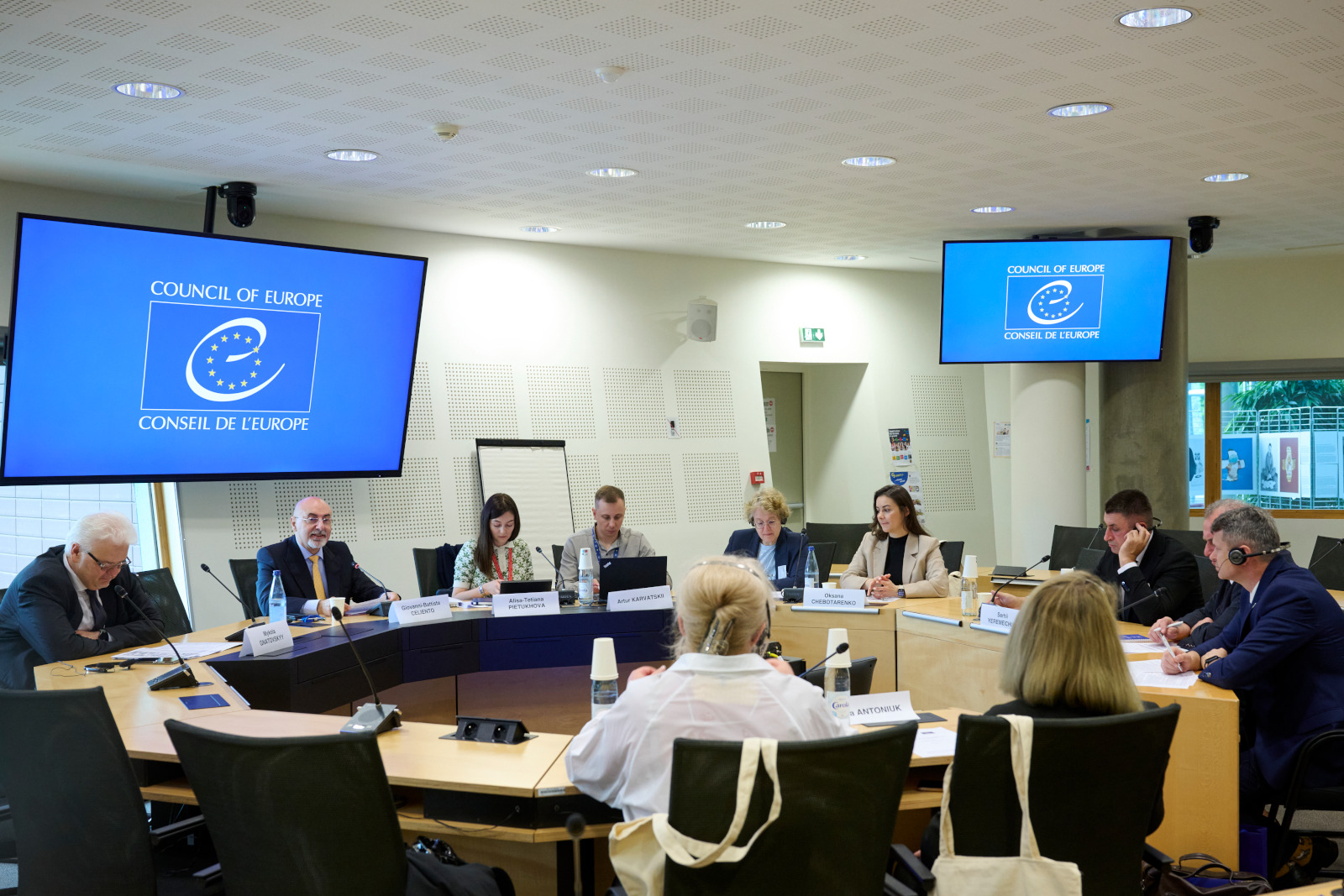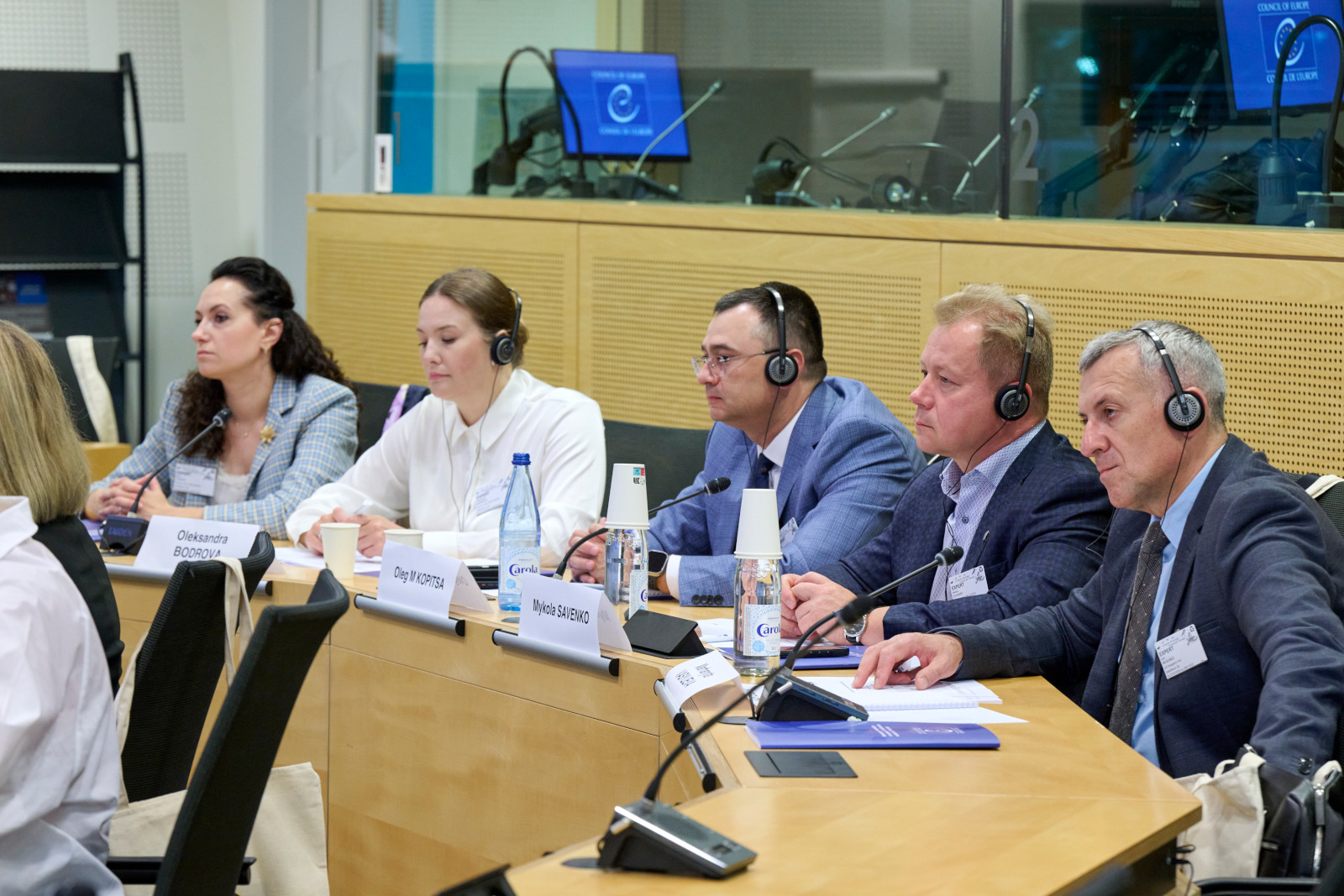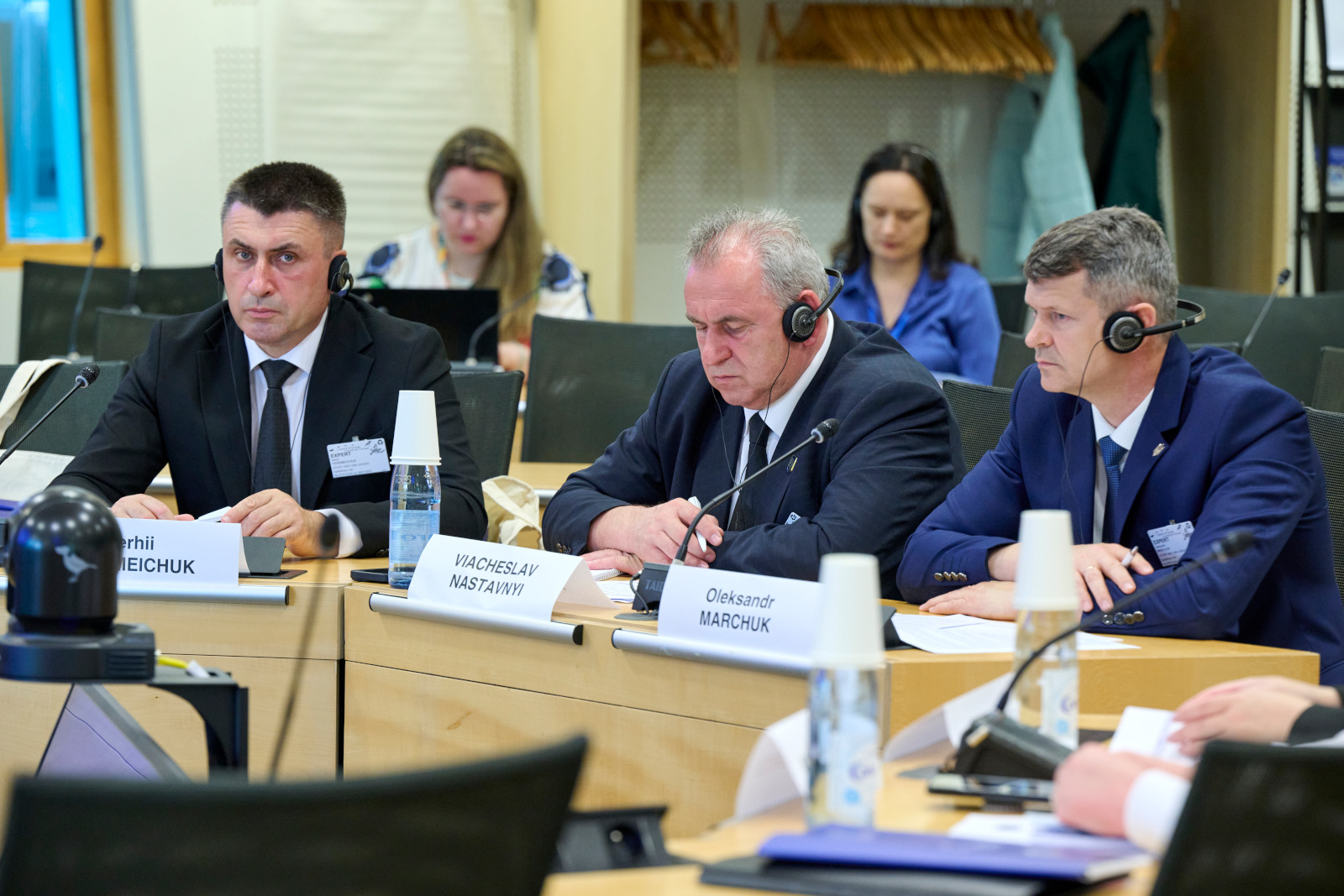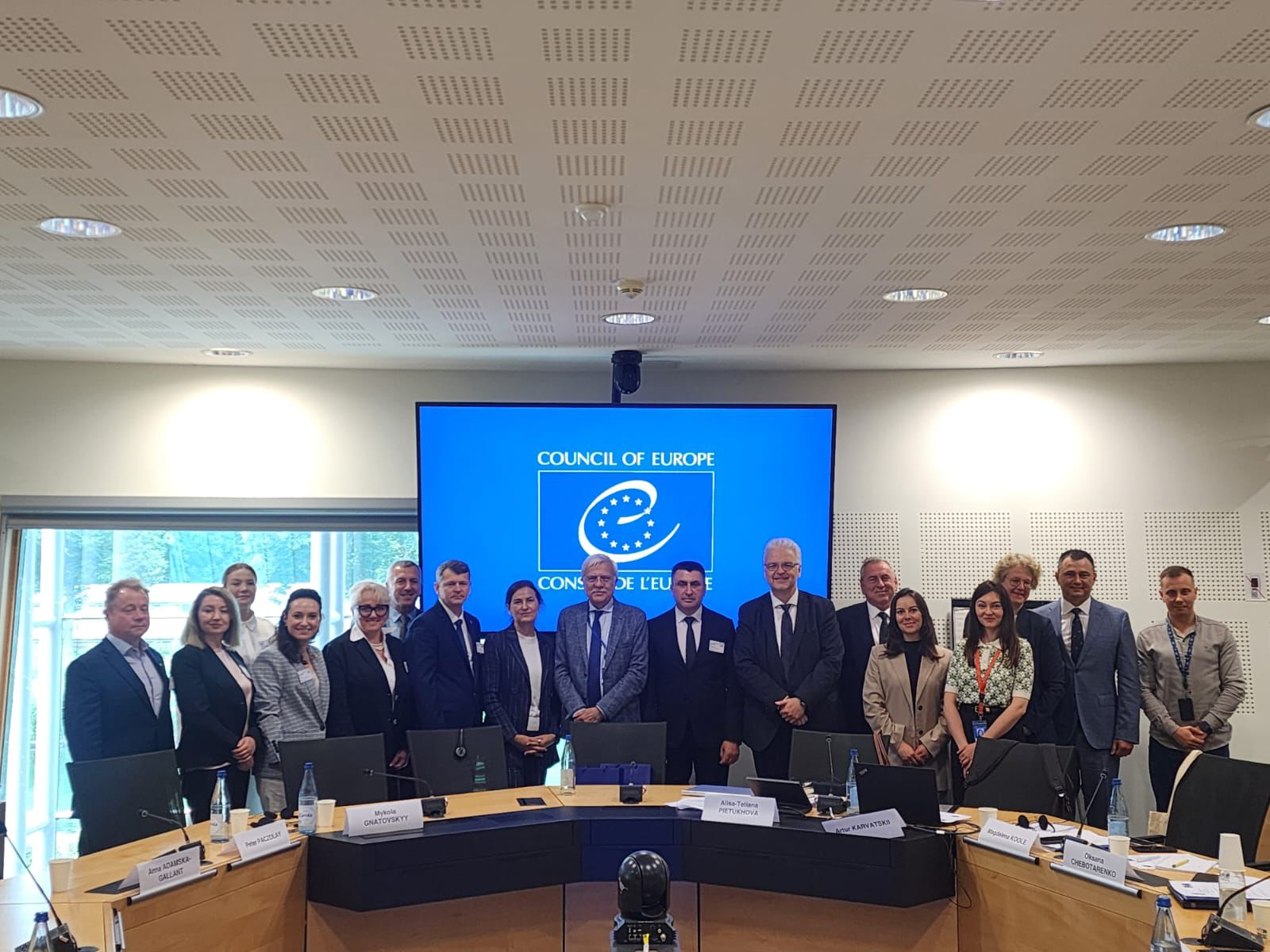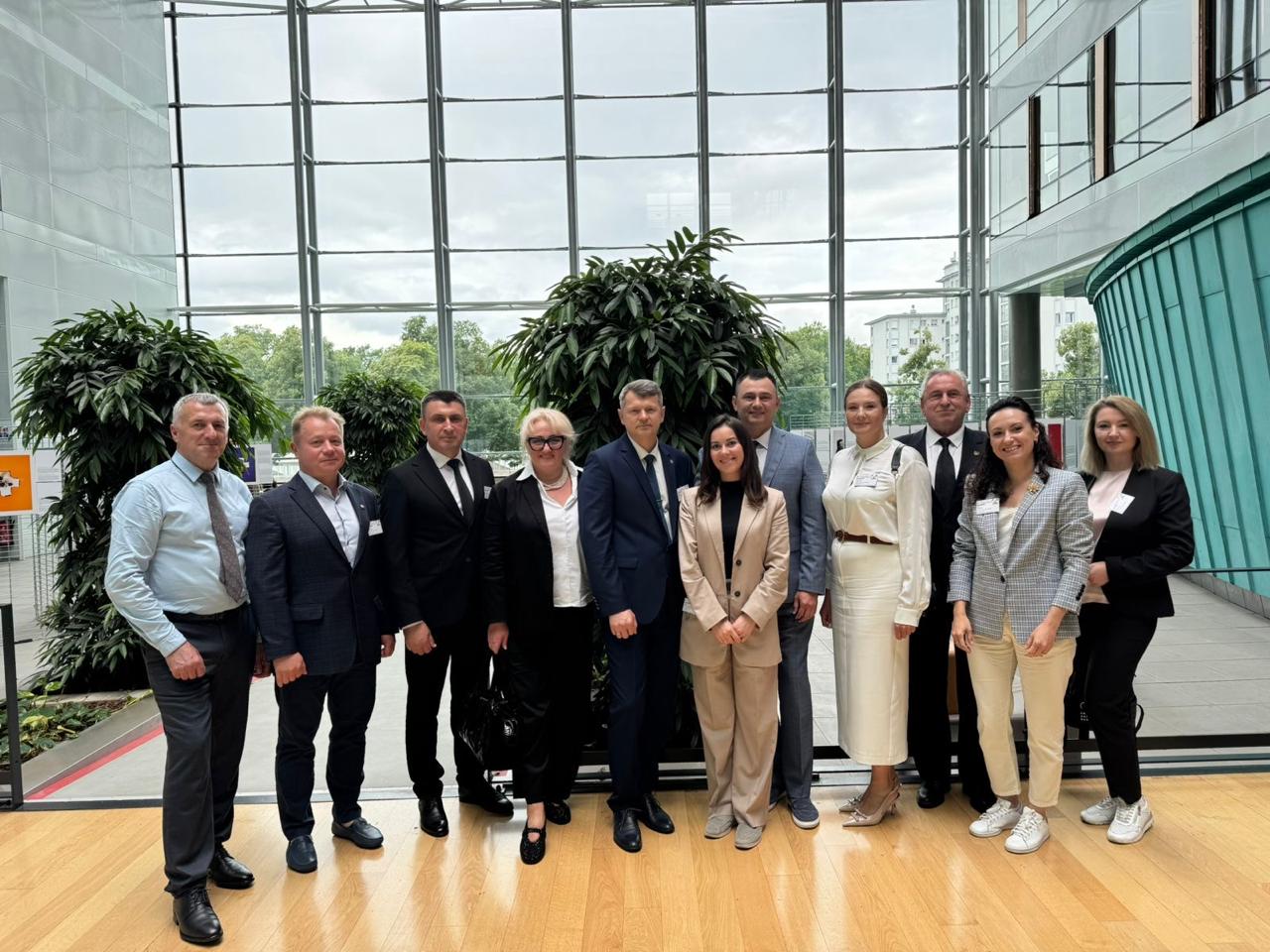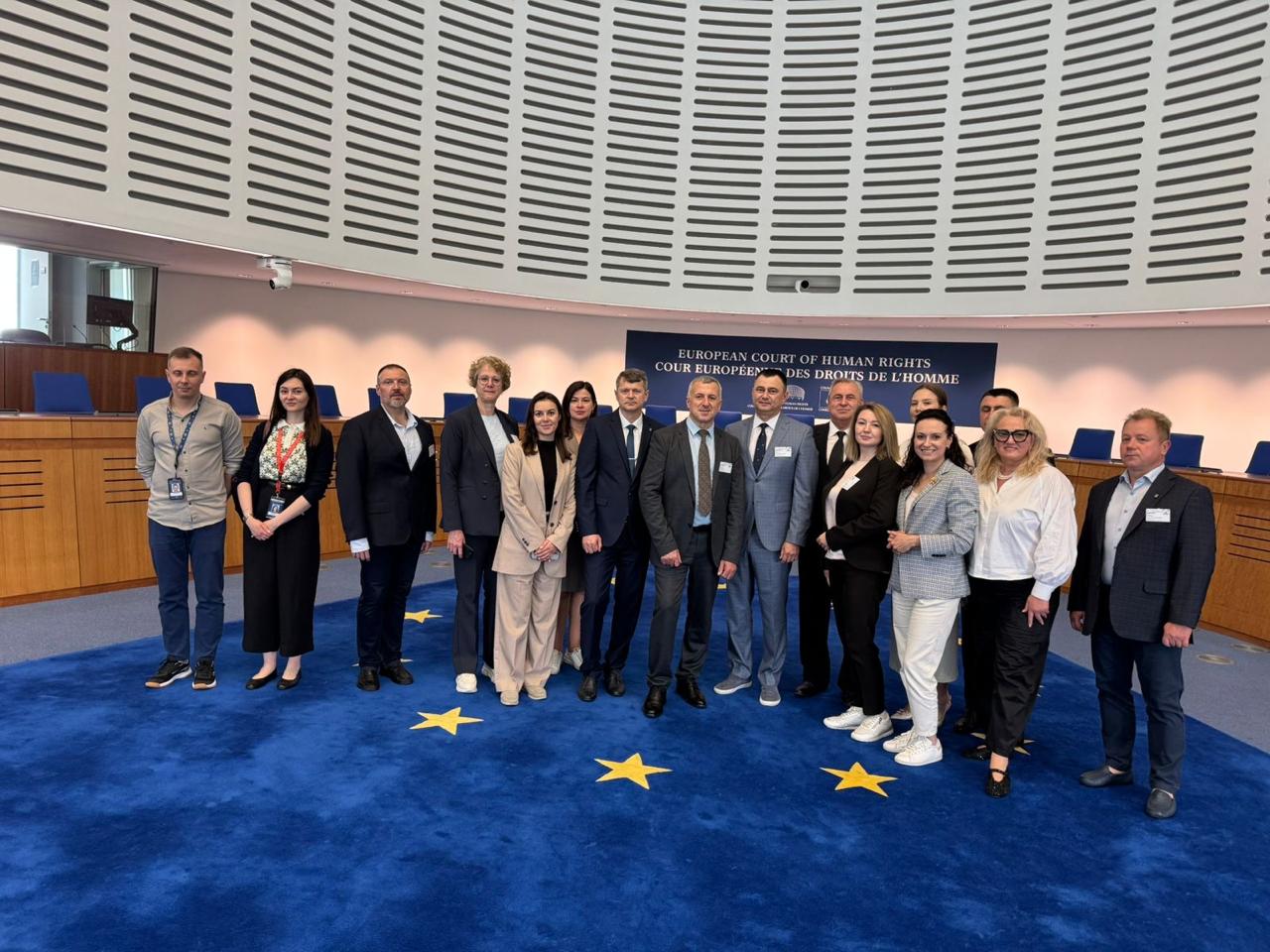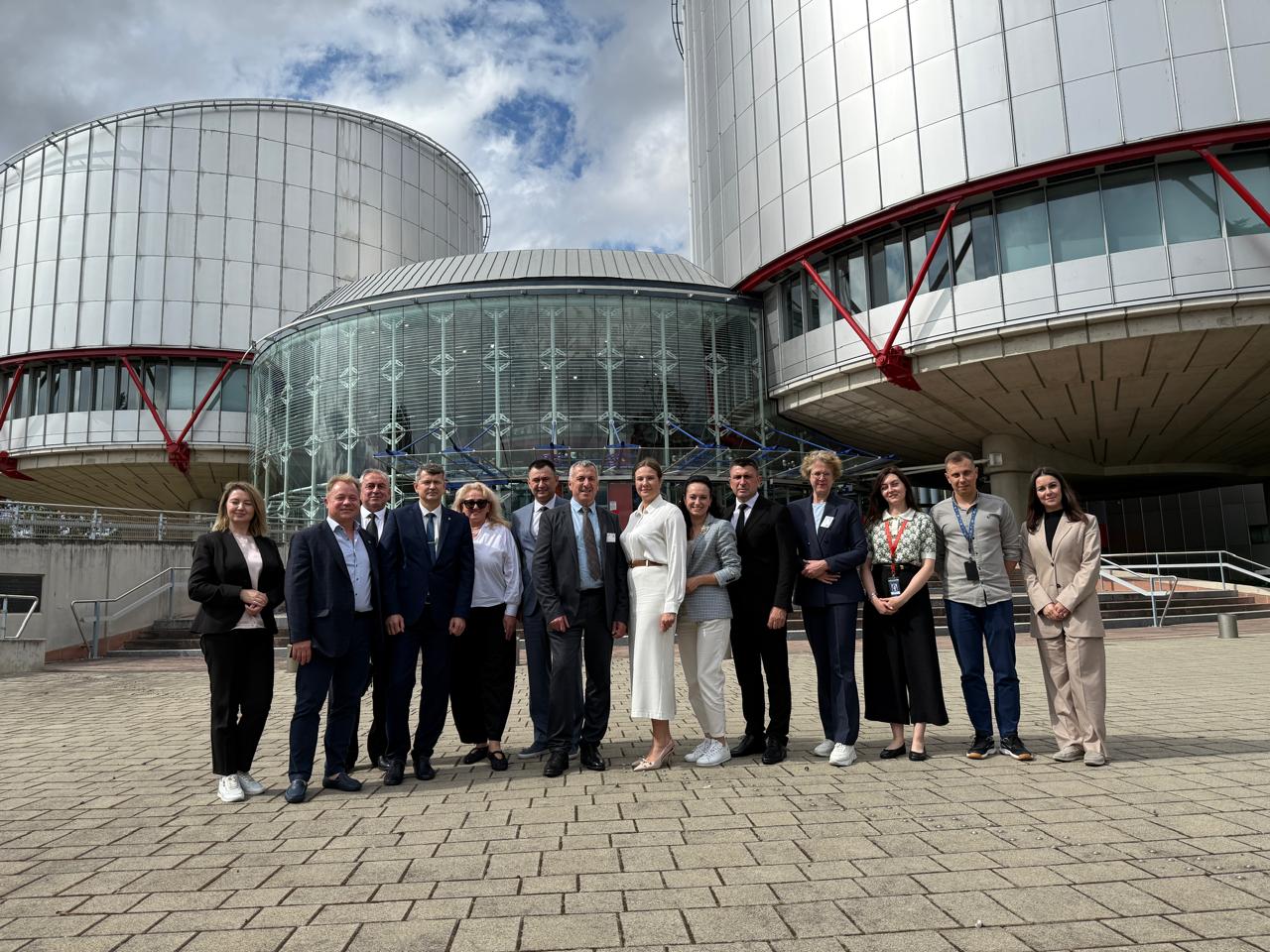Ukrainian Judges Deepen Expertise in Fair Trial Standards and War Crimes Adjudication During Strasbourg Visit
July 17, 2025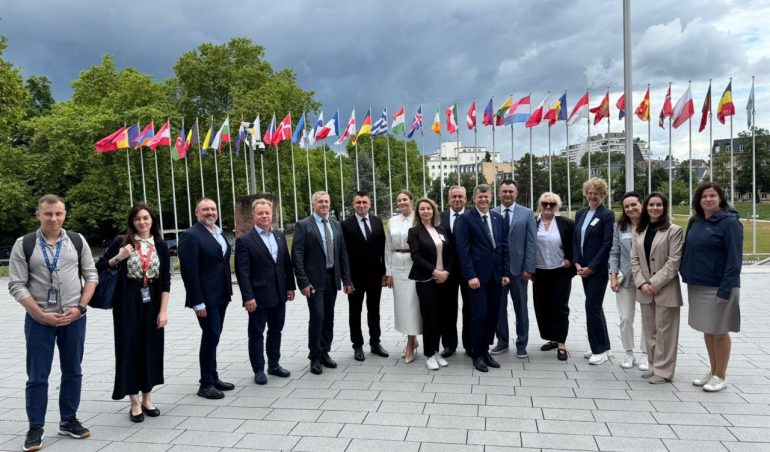
As Ukraine’s judiciary deals with a growing number of war crimes cases, the ability of judges to ensure fair trials under international law has never been more critical.
To support this effort, a group of Ukrainian judges specialising in international crimes cases took part in a two-day study visit to the Council of Europe Headquarters in Strasbourg. Organised by the Council of Europe in co-operation with the European Union Advisory Mission (EUAM) Ukraine, the visit brought together judges from the Supreme Court, appellate, and local courts to explore how European human rights standards apply in cases stemming from Russia’s ongoing war of aggression.
The programme included lectures and discussions with judges from the European Court of Human Rights (ECtHR) – among them Mr Mykola Gnatovskyy, Ms Anna Adamska-Gallant, and Mr Péter Paczolay – all of whom are closely familiar with Ukraine’s legal landscape. Participants also met with lawyers from the Court’s Registry to gain further insight into case law and procedures related to the right to a fair trial.
Judges examined key legal standards including the prohibition of retroactivity, prevention of secondary victimisation, the handling of lengthy proceedings, and approaches to interstate cases. Discussions focused on how to make domestic court proceedings “convention-proof” — fully aligned with the European Convention on Human Rights. The exchanges sparked open dialogue and practical reflections on how to apply international standards in Ukrainian courtrooms.
While war crimes adjudication was the main focus, the visit also touched on broader issues facing Ukraine’s justice system — from implementing ECtHR judgments to handling collaboration-related offences, the deportation of children, and proceedings in absentia. One session centred on the creation of a Special Tribunal for the Crime of Aggression, discussing legal developments and next steps.
“Delivering justice during wartime is one of the greatest challenges any judge can face,” said Magda Koole, EUAM’s Senior Adviser on Adjudication of International Crimes. “This visit gave Ukrainian judges the space to reflect, to learn, and to connect with European colleagues who share a deep commitment to human rights and the rule of law. Our role at EUAM is to support this effort — to stand behind Ukraine’s judiciary as it tackles unprecedented legal and moral questions with professionalism and integrity.”
As a next step, EUAM will work with Ukrainian courts and the National School of Judges to organise regional training sessions based on the insights shared in Strasbourg. Participating judges have also been encouraged to pass on their knowledge, helping to build a more resilient and human rights-respecting justice system across Ukraine.


